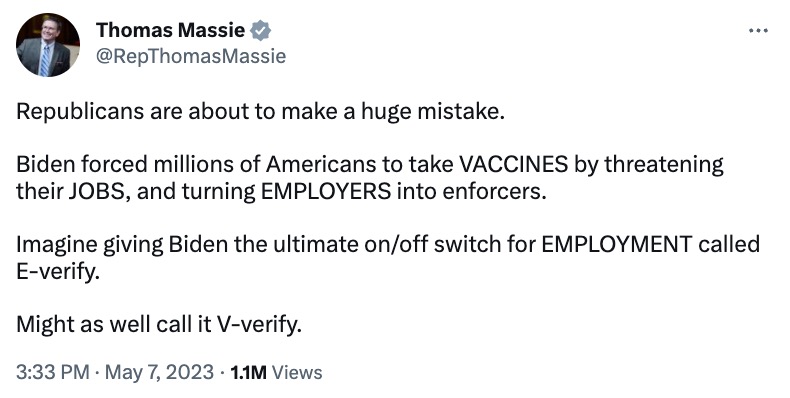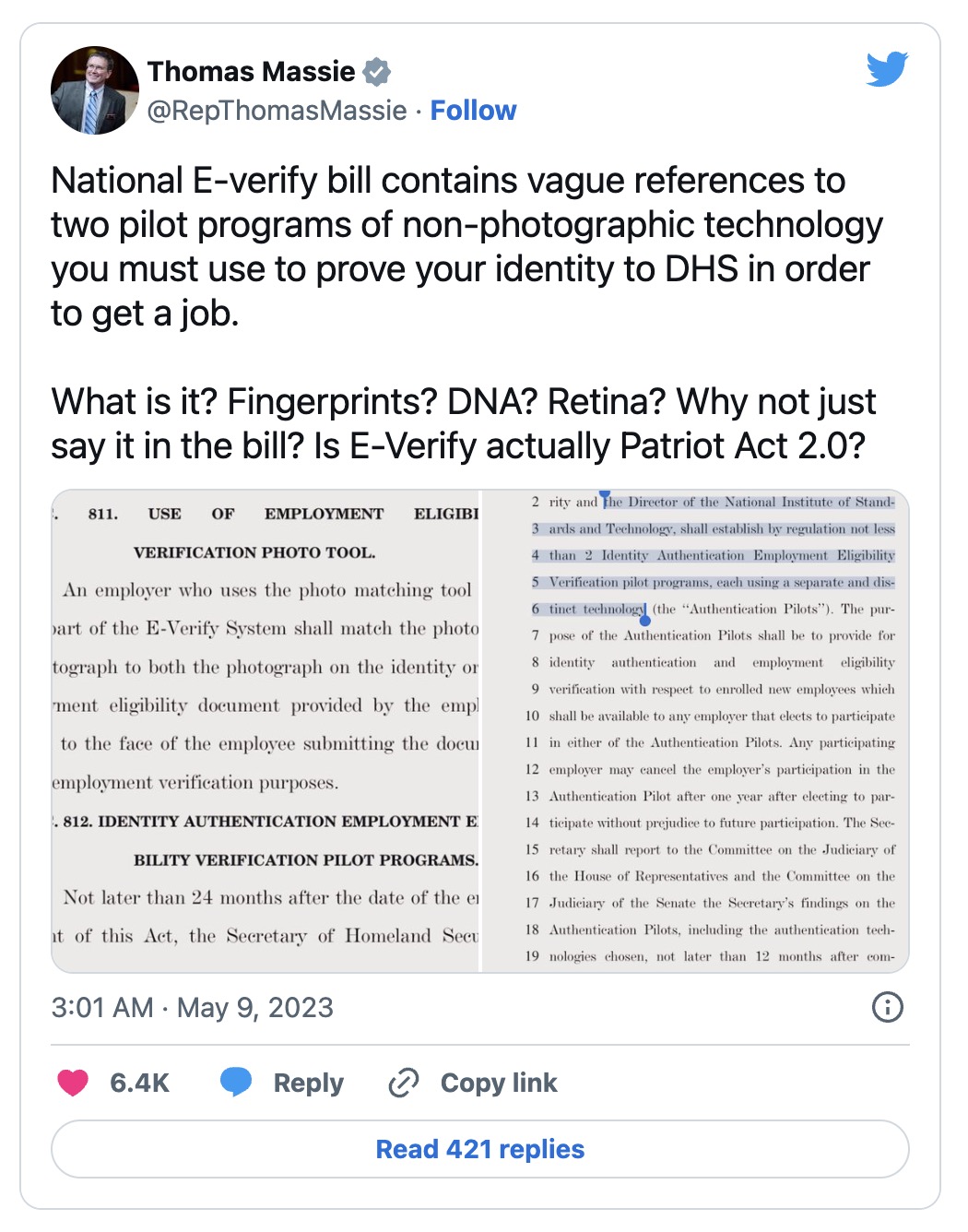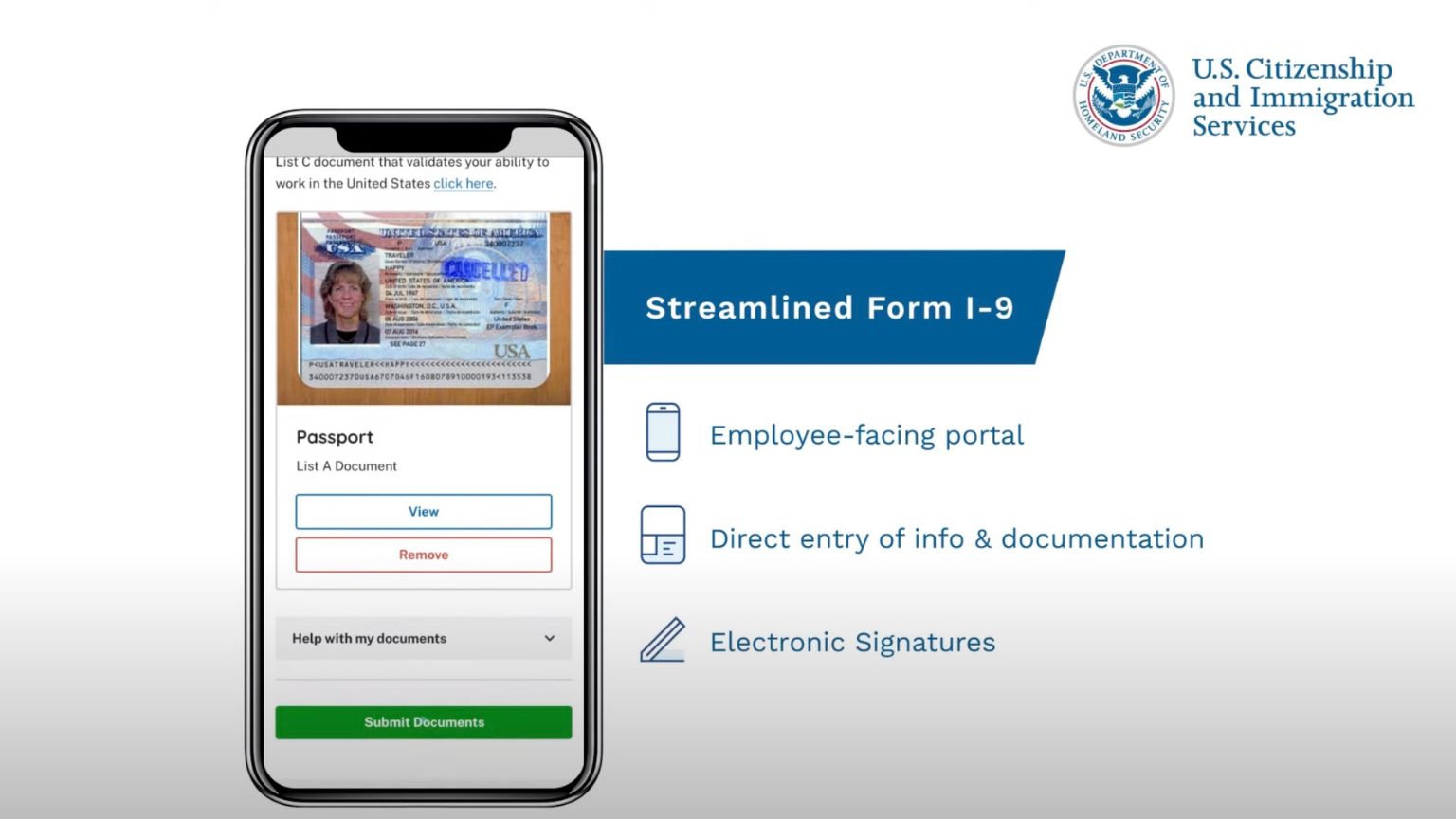Opponents of a new immigration bill, just passed by the US House of Representatives, say that it is a harmful piece of legislation that represents “a Trojan Horse” to, eventually, enable the E-Verify ID system to take strong root.
Rather than focus to criminalize the hiring of illegal immigrants, the E-Verify system, meanwhile, lets employers confirm the eligibility of employees to work in the United States through a digital ID system.
Introduced in the House this month, the Secure the Border Act of 2023 is there to address issues such as immigration and border security and contains limits to asylum eligibility.
These limits apply to non-US nationals who are considered aliens under federal law, and the difference in returning these people to where they came from – whether that’s their own country or another – is that previously, the US authorities could only do this if they had a prior agreement with the last previous country in the chain.
Now, this should be “automatic,” the bill states, with people ineligible for asylum simply sent back to either their own country, or that where they enjoyed their last lawful residence.
The bill is the work of Republicans who overwhelmingly support it, as another way to secure the US border.
But critics say, the effort here will take away some of the power that the executive branch has over immigration policy, and some of the ways state attorney-generals have to bring the federal government to court if the White House, for example, refuses to detain illegals, or deny asylum to known criminals.
While this might sound like a logical goal legislators want to achieve, those looking deeper into the bill say they have discovered its serious flaws: namely, making the E-Verify system mandatory across the US. And this is a federal surveillance scheme that is set up to make sure a person is eligible to seek employment in the US.
Not so fast – critics say illegal aliens, but also Americans, being forced to meet E-Verify requirements is actually a danger to “basic American freedom and property rights.”
The argument of the government in this way being given more “ammo” to create a “social credit score” is prominent, solely from the angle of the E-Verify being given a greater role at present time.
The problem with E-Verify, its proponents say, is that it has so far been a matter of choice – in all but nine US states, employers could decide to either use it or ignore it.
And now, the Secure the Border Act might change all that. It makes it mandatory for all employers to use the system, get rid of state rules clashing with it, and in that way, opponents say, weakens state authority.
Those focusing on the E-Verify portion of it all are saying that while now it will be used “against” immigrants – tomorrow, it might become “one more tool” in introducing a social credit score system in the US, as Republican Congressman Thomas Massie has put it.

There’s a link made to enforcing federal vaccine mandates as well – by way of making it a condition for employment. Massie’s political “mentor” Ron Paul has been a vocal critic of E-Verify for a long time, arguing that it could be used to achieve goals other than bringing some order into the immigration chaos in the US.
“This could include those accused of failing to pay their fair share in taxes, those who homeschool or do not vaccinate their children, or those who own firearms,” Paul wrote in 2018.
But many conservatives/Republicans don’t see it the same way. Not only this recent House bill proposal, but a bill in Florida also seeks to get some employers to use the E-Verify system.
On May 10, the Florida legislature “passed Senate Bill 1718 (SB 1718) which requires private employers with 25 or more employees and public employers to use E-Verify for verifying the employment eligibility of new employees starting July 1, 2023″ – and Governor Ron DeSantis was happy to sign it.
“This is just chaos,” DeSantis said during a bill-signing event in Jacksonville. “We are supposed to be the world’s leading superpower, and yet we can’t even maintain control of our own southern border. The Mexican drug cartels have more to say about what goes on at the southern border than our own US government does.”

In a tweet, Congressman Massie said that the “national E-verify bill contains vague references to two pilot programs of non-photographic technology you must use to prove your identity to DHS in order to get a job.”
Massie questioned it further: “What is it? Fingerprints? DNA? Retina? Why not just say it in the bill? Is E-Verify actually Patriot Act 2.0?”










